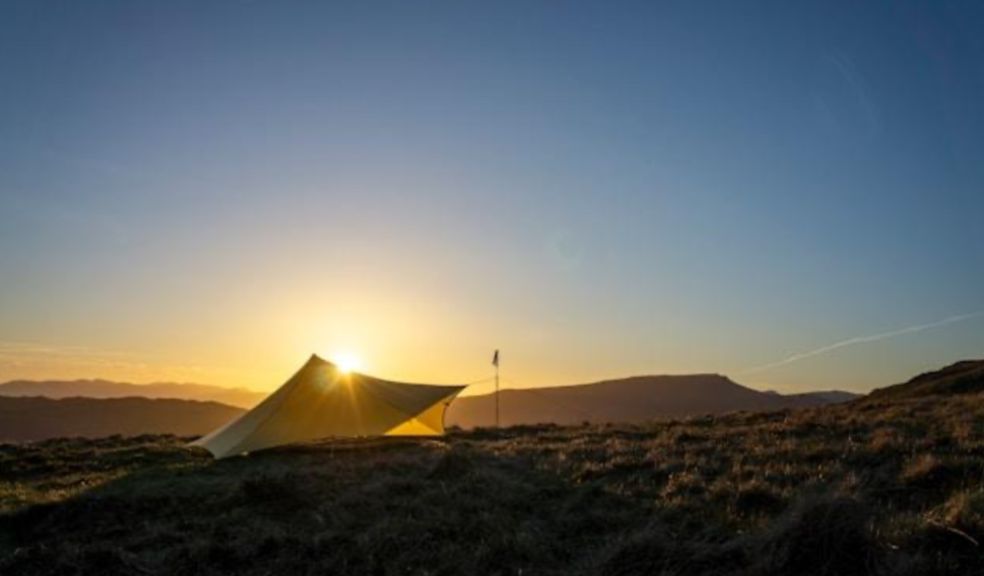
There are many ways that you can stay safe while camping
This is how camping is supposed to be: just you, a tent, a warm cup of Joe, and the elements. Many landowners are happy to accommodate campers as long as you respect the property. Be sure to leave no trace when you set off again on your travels. Camping is very much enjoyable, but there’s a certain level of risk present when getting outside into nature. With a little bit of planning and some gear, you’re good to go. If you want to get the most from your rejuvenating holiday, keep in mind these tips the next time you lie under the stars.
Avoid Camping Under Large Trees
So, you’ve arrived at your destination and are on the point of hammering in the first peg. Look around, pick a discrete location, and pitch your tent on a flat area so you can get a good night’s sleep. Don’t set up your campsite under large trees because you risk being injured or killed by falling branches. Lightning, one of nature’s most recurrent and common spectacles, can strike, and wind gusts can occur; most tree trunks break irrespective of their elasticity, height, or diameter. Tempting as it might seem to pitch your tent under a large tree, it’s not as good an idea as you think.
Keep Critters Away from Your Food
If you leave your food in dry bags, critters will gnaw through the fabric and help themselves. This is why you must keep food in an airtight, waterproof bag or container that is equipped to handle weeks of storage. It’s not chew-proof, just so you know. Hanging food in the trees is the standard method for food storage and handling while camping in the great outdoors, but a bear canister is a better alternative. Your belongings are entirely secure from racoons, rodents, and other critters attracted to human food. National parks, home to one-of-a-kind landscapes, flora, and fauna, feature permanent canisters, so call ahead of time and reserve one.
Wild animals are interested in strange scents, so if you have items that emit strong odours (toothpaste, soap, sunscreen, etc.), it’s best to keep them inaccessible if you want to avoid a dangerous encounter. What you need to understand is that creatures are inquisitive, and all potentially smelly things can attract them. European brown bears are thought to have become extinct in the British wilds, but countless other dangerous animals reside in the wilderness. If they become used to humans and human food, they could be put down by wildlife management. Plus, wild animals have special diets and can die from the wrong foods.
Reduce The Probability of Being Attacked
Meeting wild creatures is an un forgettable experience, for the better or worse. Not everyone poses a threat to you, and it’s far more likely that the animal is more afraid of you than you are of it. Still, it’s better to be safe than sorry. There’s the risk of running into sketchy people while camping. It’s one of the most bizarre experiences. Make sure your belongings are safe by keeping them in a secure location – use a camping lock to keep your gear safe in risky conditions. Camping is relatively safe, provided you limit your group to members of your household and friends.
Camping anywhere leaves you inherently vulnerable. Enjoying the wilderness in complete privacy can set you up as a potential victim. Even staying close to other people isn’t enough to keep predators away. No amount of compensation can ever make up for the harm and suffering caused by a violent crime; it’s just an acknowledgement of the harmful impact of the unlawful act and an important gesture of sympathy. Please visit https://www.compensationcalculatoruk.co.uk/criminal-injuries-compensation-calculator/ to see the amount you might expect to receive. Only the most severe injury will be included in the compensation calculation. You must apply as soon as it’s reasonably practical for you to do so.
Keep An Eye on The Weather
Keep a vigilant eye on the weather forecast as you plan your outdoor adventure to ensure an enjoyable time. Consider both daytime and nighttime temperatures. Even if it’s not ideal, you can go camping if it rains – it’s just that you need to approach your trip differently. Maybe you love to go camping with your furry friend. In that case, ensure you have everything they need to stay comfortable and protected against adverse weather conditions. Never leave your dog unattended, even if they prefer to play alone, because they can eat sticks, stones, and other objects.
Be Aware of Poisonous Plants
Last but certainly not least, there are some plants you’ll want to avoid on your next camping trip. The UK has a great many poisonous plants lurking in plain sight, such as foxglove, stinging nettle, and poison ivy, to name a few. One of the best parts of camping is being surrounded by nature and its abundance of plant species, but brushing up against a poisonous plant or mistaking toxic berries for edible ones isn’t so fun. If you come in contact with a poisonous plant, clean up your gear and keep it from spreading onto your clothes.
Needless to say, you must seek medical attention when necessary. A trip to the emergency room is of the essence if you have trouble breathing and swallowing or have a rash that spreads to other areas of your body. The worst thing you can do is scratch a rash because it becomes infected; it’s easy for germs to enter. The general rule of thumb is that if a plant has leaves of three, you should let it be. Some plants have groups of five to nine leaves. Remember that redness and swelling disappear within 14-20 days without treatment.
The Takeaway
Camping can bring about so many great things, like getting outside into nature and increasing your daily activity levels, but it can also give rise to dangerous situations. Always check the weather report before you leave, be certain others know about your plans, and bring a first-aid kit with you just in case.
















